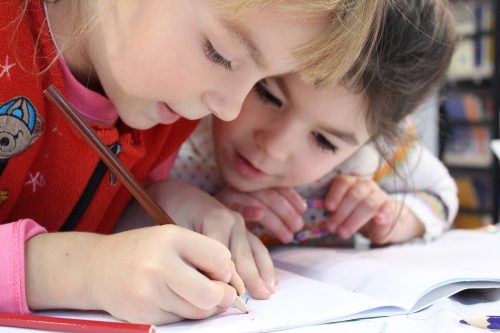Building Resilience in Children: The Benefits of Therapy
Resilience is the ability to bounce back from adversity and difficult situations. It is a vital trait for children to develop, as it enables them to cope with the challenges of growing up and thrive in the face of adversity. One of the most effective ways to build resilience in children is through therapy. In this blog post, we will explore the benefits of therapy for building resilience in children, and how it can help them navigate the challenges of life.

What is Resilience in Children?
Resilience in children refers to the ability to cope with stress and adversity, maintain a positive outlook, and bounce back from difficult situations. Children who are resilient are better able to handle setbacks and challenges, and are more likely to succeed in life. Children are not born with resilience, but rather a skill that can be developed and strengthened over time.
The Importance of Building Resilience in Children
Building resilience in children is crucial for their emotional well-being and overall development. Children who are resilient are less likely to develop mental health issues such as anxiety and depression, and are more likely to succeed in school and in their future careers. Resilient children also have better relationships and are better able to handle stress and adversity.

How Therapy Can Help Build Resilience in Children
Therapy is an effective tool for building resilience in children. Through therapy, children can learn to cope with stress and adversity, develop positive coping strategies, and build self-esteem and confidence.
Therapy can also help children understand and process their emotions, which is important for building resilience. Children who are able to understand and manage their emotions are better able to cope with difficult situations and bounce back from setbacks.
Cognitive Behavioral Therapy (CBT) is a type of therapy that is particularly effective for building resilience in children. CBT helps children change negative thought patterns and behaviors, and teaches them coping skills and problem-solving strategies.
Play therapy is another effective form of therapy for children. Play therapy is a form of therapy that uses play as a medium for communication and healing. Play therapy allows children to express themselves and explore their emotions in a safe and non-threatening environment.

Benefits of Therapy for Building Resilience in Children
- Improved coping skills: Through therapy, children learn effective coping strategies for dealing with stress and adversity.
- Increased self-esteem and confidence: Therapy helps children develop a positive self-image and build self-esteem and confidence.
- Better emotional regulation: Therapy helps children understand and manage their emotions, which is crucial for building resilience.
- Improved problem-solving skills: Therapy teaches children problem-solving strategies and encourages them to take an active role in finding solutions to problems.
- Greater understanding of themselves and others: Therapy provides children with a safe space to explore their feelings and emotions, and to understand their thoughts and behaviors.
Opportunities For Resilient Children
Children who are resilient have many opportunities ahead of them. Here are a few examples:
- Educational opportunities: Resilient children are more likely to succeed in school and have better academic outcomes. They are better able to handle setbacks and challenges, and are more likely to persevere in the face of difficulties.
- Career opportunities: Resilient children are better able to cope with stress and adversity, which can be beneficial in a variety of careers. They are also more likely to have better mental health and be more productive in the workplace.
- Relationship opportunities: Resilient children tend to have better relationships with others. They are better able to handle conflicts and difficult situations and are more likely to have positive relationships with friends and family.
- Life opportunities: Resilient children are more likely to be able to handle the stress and challenges of life and have a more positive outlook. They are also more likely to be successful in achieving their goals and aspirations. Given that the educational system does not focus on the real-life challenges, having resilient children will definitely give them an edge in handling the real world.
- Emotional opportunities: Resilient children are better able to understand and regulate their emotions, which can help them build healthier relationships, make better decisions, and feel more satisfied and fulfilled in life.
It’s important to note that these opportunities will not be present to every child who is resilient. It will still vary depending on the environment and the community surrounding the child.
Conclusion
Building resilience in children is crucial for their emotional well-being and overall development. Therapy is an effective tool for building resilience in children, as it helps them cope with stress and adversity, develop positive coping strategies, and build self-esteem and confidence. Through therapy, children learn to understand and manage their emotions, which is crucial for building resilience. As a parent, it’s important to consider therapy for your child if you feel that they need support in developing resilience. It’s essential to develop resilience early on than wait until adulthood.




